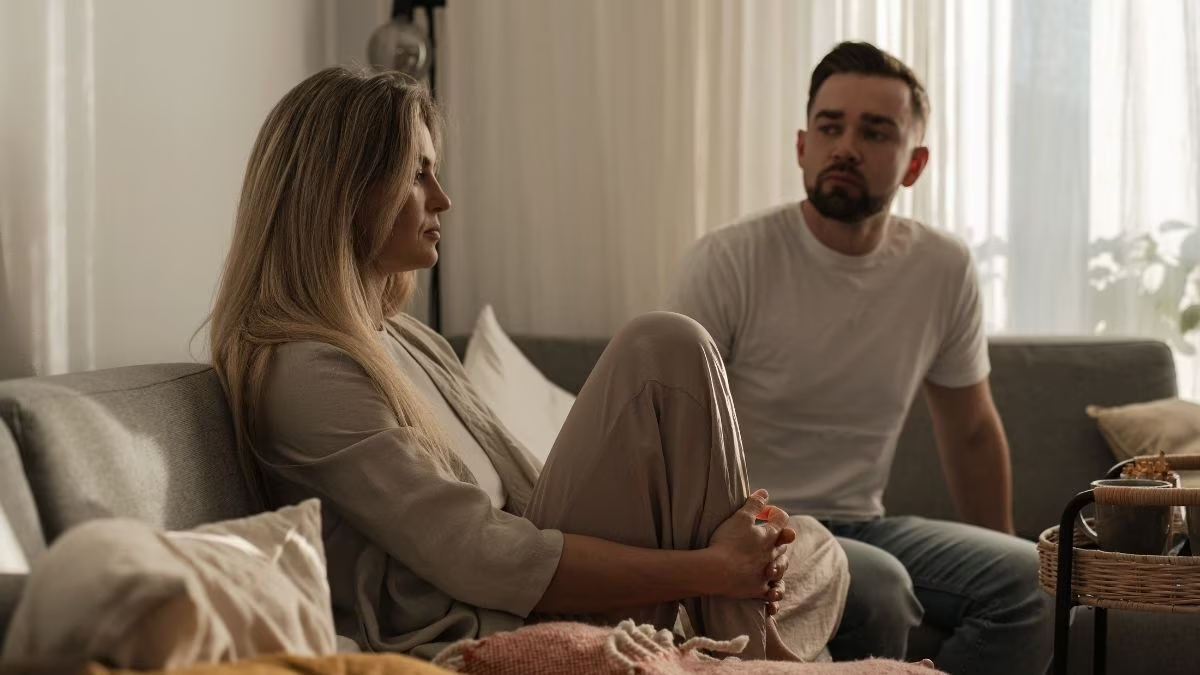ou can list one hundred reasons why you and your partner should consider couples therapy, but your partner can list one hundred and one reasons to not. Sound familiar? When cracks begin to show in a relationship it’s natural to consider professional help, however, it’s also natural to be hesitant about seeking advice from an expert.
In this article, the experts at OurRitual have pulled together tips to keep in mind when your partner won’t join couples therapy including alternative strategies you could consider to relationship guidance such as workshops or individual therapy.
Tips for when your partner won’t consider couples therapy
#1 Try to understand their resistance
Before you even begin to dive into potential solutions, it’s important to understand the reasons behind your partner's resistance to couples therapy. Some of the most common reasons can include a fear of judgment, the stigma associated with therapy, or the misconception that therapy is only for couples with severe issues. By knowing and understanding your partner's perspective, you can approach the situation with empathy and open communication.
#2 Have an honest conversation
When you want to discuss a topic important to you and your relationship, open and honest communication is key! Try to start by speaking about your concerns and your reasons behind wanting to attend couples therapy. Choose a calm moment to express your feelings, and do it in a place where you both feel comfortable speaking openly. Use “I! Statements to avoid sounding accusatory, for example, "I feel concerned about our relationship, and I believe couples therapy could help us navigate these challenges together."
#3 Focus on the benefits
Instead of emphasizing the problems in your relationship that you think need to be addressed, try to highlight the benefits couples therapy could bring to you both! Discuss how it can enhance communication, strengthen your emotional bond, and provide tools to help you resolve conflicts constructively - so you can spend more time growing together! Emphasize that seeking help is a proactive step toward creating a healthier, more fulfilling partnership - not a step back.
#4 Address your partner's concerns or misconceptions
If your partner has specific concerns or misconceptions about couples therapy, address them directly. Discuss common myths, such as the idea that therapy is only for couples on the brink of a break-up, and provide information about the variety of issues that can be addressed in therapy. Assure your partner that seeking help is a sign of strength and commitment to personal and relational growth.
#5 Suggest a trial period
Suggest a trial period for couples therapy where you both commit to a set number of sessions. This approach allows your partner to experience the therapeutic process without the pressure of a long-term commitment. If you choose online relationship guidance with OurRitual, you can be safe in knowing that if you or your partner aren’t happy after your first few sessions, you can avail of our 14-day money-back guarantee.
What are the alternatives to couples therapy?
If your partner simply won’t budge, there are alternatives you could consider to help address any relationship challenges. These might include:
- Self-help resources: Explore self-help resources together, such as books, podcasts, or online courses that focus on relationship skills, communication, and emotional intelligence. Of course this isn’t a substitute for professional help, these resources can start you both out with some valuable insights and strategies (and might even ease your partner into the idea of couples therapy).
- Relationship workshops or retreats: Try out a relationship workshop or retreat as a couple. These experiences often offer guided activities, discussions, and expert-led sessions to improve communication and intimacy. Again, this is not a replacement for professional therapy but it can provide a space for you both to communicate openly.
- Individual therapy: Why not consider individual therapy for yourself? Working on your personal growth and self-awareness can positively impact the dynamics of your relationship. At OurRitual, our programs are designed to work for individuals in a relationship, as well as couples.
If you would like to speak with a relationship expert about your relationship, consider OurRitual. OurRitual is a schedule-friendly and affordable app that helps you heal and turn crisis into opportunity with the help of our experienced Relationship Experts, and science-backed method.
Here’s how it works:
- Tell us about yourself: Start by having a session with one of our experts. Together we explore your goals and needs, to make sure our guidance stays relevant and effective.
- Get your personalized plan: Decide which areas of your relationship you want to focus on. You’ll receive insights and tools to help you get where you want to go, while better understanding your partner (and yourself).
- Make daily steps forward: Improvement becomes a habit, with new skills and approaches you’ll start practicing right away. Weekly 1:1 sessions with your expert will help you track the changes as you go, and keep you motivated in the process.
























